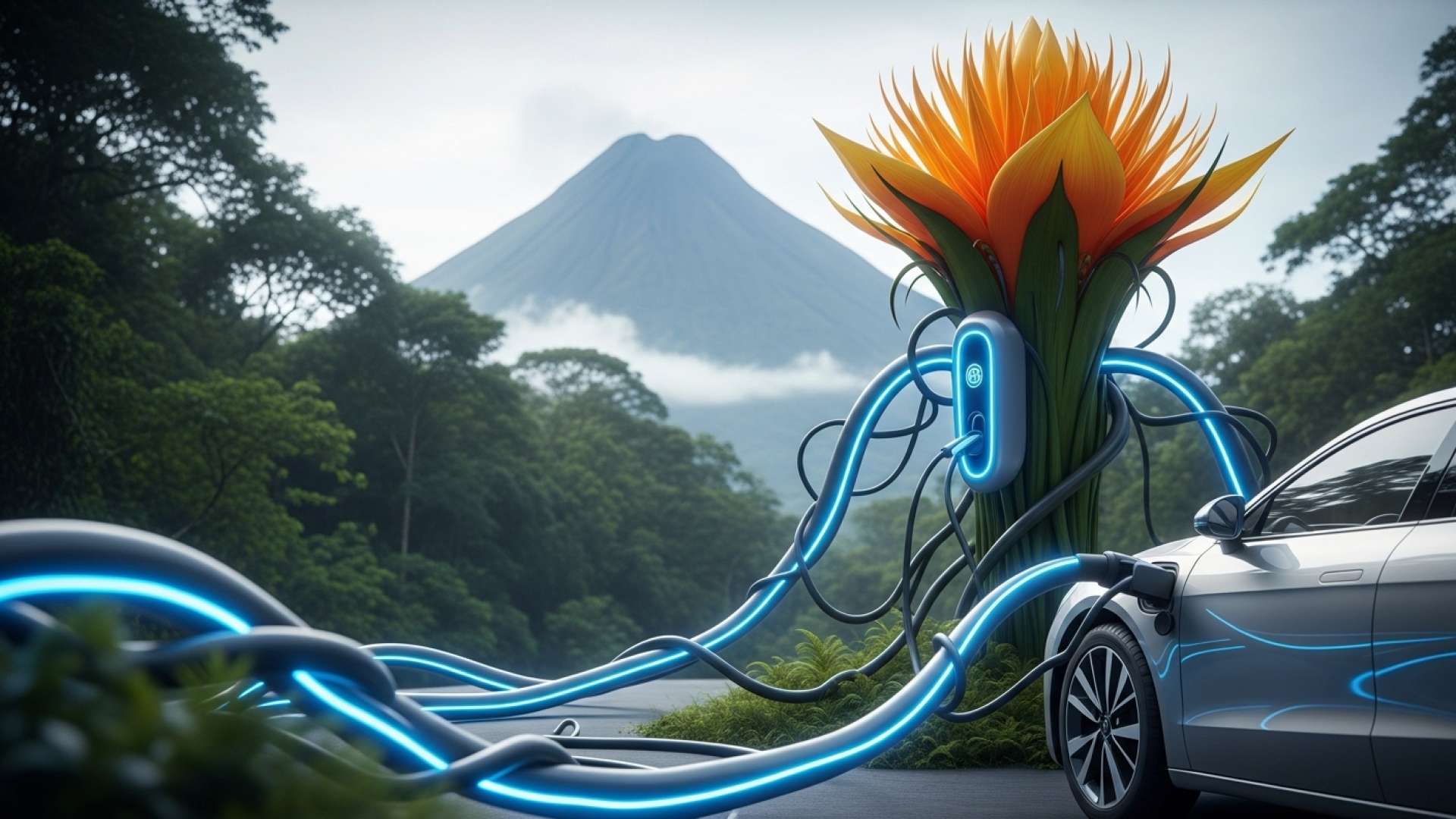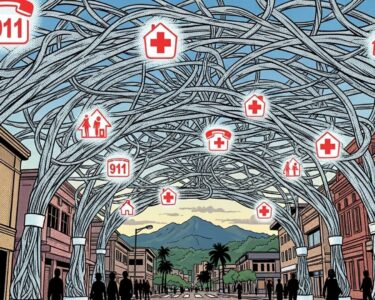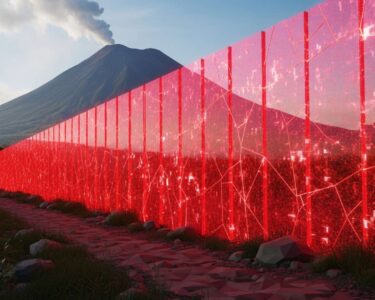San José, Costa Rica — In a significant step forward for Costa Rica’s sustainable transportation goals, the Costa Rican Electricity Institute (ICE) has officially confirmed that its public network of electric vehicle (EV) fast chargers is fully compliant with the nation’s stringent technical and voltage quality regulations. This verification from the Public Services Regulatory Authority (ARESEP) solidifies the reliability and safety of the 45 charging centers strategically located along the country’s primary transportation corridors.
The announcement underscores the maturity of the “¡ES ELÉCTRICO!” network, which serves as a critical backbone for the growing number of EV drivers in Costa Rica. By adhering to established national and international standards, ICE provides users with the assurance that the charging infrastructure is not only modern and accessible but also technically sound, protecting both their vehicles and the national power grid. This compliance is a cornerstone of building consumer confidence and accelerating the transition away from fossil fuels.
To delve into the regulatory landscape and legal intricacies of establishing a robust national EV charging network, TicosLand.com sought the expert analysis of Lic. Larry Hans Arroyo Vargas, a distinguished attorney specializing in corporate and regulatory law at the firm Bufete de Costa Rica.
The successful expansion of an EV charging network is not merely a technological or financial hurdle; it is fundamentally a legal one. Proponents must navigate a complex web of municipal zoning ordinances for station placement, secure environmental viability permits from SETENA, and comply with ARESEP’s evolving tariff and public service regulations. Furthermore, defining liability for equipment malfunction and ensuring data privacy for users are critical consumer protection issues that must be contractually addressed to build public trust and attract sustainable investment.
Lic. Larry Hans Arroyo Vargas, Attorney at Law, Bufete de Costa Rica
This legal perspective is crucial, reminding our readers that the road to a national EV charging network is paved not only with investment and technology, but with a clear and supportive regulatory framework. We thank Lic. Larry Hans Arroyo Vargas for so expertly illuminating the foundational challenges that will ultimately determine the project’s success.
At the heart of the certification are two key technical norms. The charging connectors adhere to the INTE-IEC61851-1:2017 standard, an international benchmark for EV conductive charging systems. Furthermore, the power delivery meets the specific voltage levels mandated by ARESEP’s own Technical Standard for the Quality of Supply Voltage (AR-NT-SUCAL). This dual compliance ensures a consistent, safe, and efficient charging experience, minimizing risks of electrical faults or damage to sensitive vehicle components.
Jeremy Prado, Coordinator of Business Development and Solutions at ICE, affirmed the network’s readiness to support the country’s evolving e-mobility landscape. He emphasized that the infrastructure is designed to handle the current demands of the market while meeting all legal and technical requirements.
The connectors in our network comply with current regulations and respond to the current market demand.
Jeremy Prado, Coordinator of Business Development and Solutions at ICE
While the charging stations themselves are certified, Prado issued an important advisory to consumers regarding the use of third-party equipment. He stressed the potential dangers associated with unverified adapters, which can create a weak link in the charging process and compromise the safety of the entire system.
We remind customers that adapters should only be used if they have been approved by the vehicle or charger manufacturer. The use of unauthorized devices can cause damage to the charging station and the vehicle, and even pose a risk to user safety.
Jeremy Prado, Coordinator of Business Development and Solutions at ICE
This warning highlights a critical aspect of EV ownership: ensuring all components, from the public station to the vehicle’s port, are compatible and certified. The use of non-compliant adapters can lead to poor connections, overheating, and potential damage to the vehicle’s sophisticated battery management system or the charging station’s internal electronics, posing both financial and safety risks.
Looking ahead, ICE is actively reinforcing its national grid by incorporating new chargers that prioritize the CCS1 and GB/T DC connector types. This strategic decision reflects the current automotive market in Costa Rica, catering to the standards used by most American, European, and Asian vehicle manufacturers. This forward-thinking approach ensures broader compatibility and future-proofs the network as more diverse EV models enter the country. For any inquiries or to report service issues, customers can contact a dedicated 24/7 support line at 1194.
Ultimately, this official validation by ARESEP is more than a technicality; it is a powerful statement about Costa Rica’s commitment to building a world-class e-mobility ecosystem. By guaranteeing a secure, standardized, and reliable public charging network, ICE is effectively removing one of the primary barriers to EV adoption and reinforcing the nation’s reputation as a global leader in environmental stewardship and sustainable development.
For further information, visit grupoice.com
About Instituto Costarricense de Electricidad (ICE):
The Instituto Costarricense de Electricidad is the state-owned provider of electricity and telecommunications services in Costa Rica. Founded in 1949, ICE has been instrumental in the country’s development, overseeing the expansion of its power grid, which is predominantly supplied by renewable resources. Through initiatives like the “¡ES ELÉCTRICO!” network, ICE plays a pivotal role in advancing Costa Rica’s national decarbonization plan and promoting sustainable technologies.
For further information, visit aresep.go.cr
About Autoridad Reguladora de los Servicios Públicos (ARESEP):
The Public Services Regulatory Authority is the autonomous government institution responsible for regulating and overseeing public services in Costa Rica, including energy, water, and transportation. ARESEP’s mission is to ensure the quality, continuity, and accessibility of these essential services while balancing the interests of consumers, service providers, and the state. It establishes technical standards, sets tariffs, and ensures compliance to protect consumer rights and promote economic efficiency.
For further information, visit bufetedecostarica.com
About Bufete de Costa Rica:
Bufete de Costa Rica operates as a leading legal institution, grounded in a deep-seated principle of integrity and a relentless pursuit of excellence. Drawing upon a proven history of advising a wide array of clients, the firm consistently pioneers forward-thinking legal strategies and actively engages in community betterment. Central to its philosophy is a profound dedication to democratizing legal knowledge, thereby empowering individuals and strengthening the foundations of an informed and capable society.









